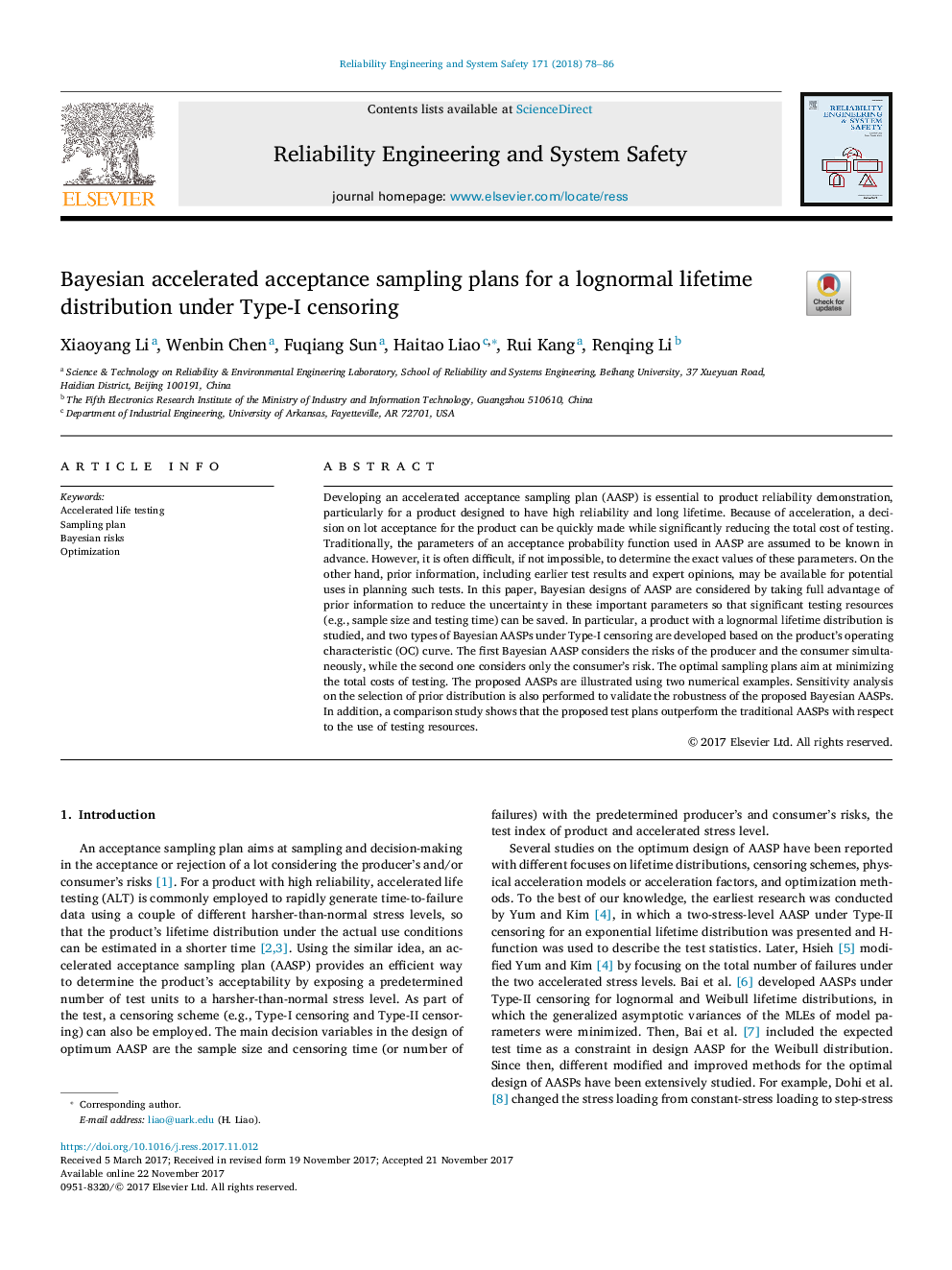| Article ID | Journal | Published Year | Pages | File Type |
|---|---|---|---|---|
| 7195280 | Reliability Engineering & System Safety | 2018 | 9 Pages |
Abstract
Developing an accelerated acceptance sampling plan (AASP) is essential to product reliability demonstration, particularly for a product designed to have high reliability and long lifetime. Because of acceleration, a decision on lot acceptance for the product can be quickly made while significantly reducing the total cost of testing. Traditionally, the parameters of an acceptance probability function used in AASP are assumed to be known in advance. However, it is often difficult, if not impossible, to determine the exact values of these parameters. On the other hand, prior information, including earlier test results and expert opinions, may be available for potential uses in planning such tests. In this paper, Bayesian designs of AASP are considered by taking full advantage of prior information to reduce the uncertainty in these important parameters so that significant testing resources (e.g., sample size and testing time) can be saved. In particular, a product with a lognormal lifetime distribution is studied, and two types of Bayesian AASPs under Type-I censoring are developed based on the product's operating characteristic (OC) curve. The first Bayesian AASP considers the risks of the producer and the consumer simultaneously, while the second one considers only the consumer's risk. The optimal sampling plans aim at minimizing the total costs of testing. The proposed AASPs are illustrated using two numerical examples. Sensitivity analysis on the selection of prior distribution is also performed to validate the robustness of the proposed Bayesian AASPs. In addition, a comparison study shows that the proposed test plans outperform the traditional AASPs with respect to the use of testing resources.
Related Topics
Physical Sciences and Engineering
Engineering
Mechanical Engineering
Authors
Li Xiaoyang, Chen Wenbin, Sun Fuqiang, Liao Haitao, Kang Rui, Li Renqing,
